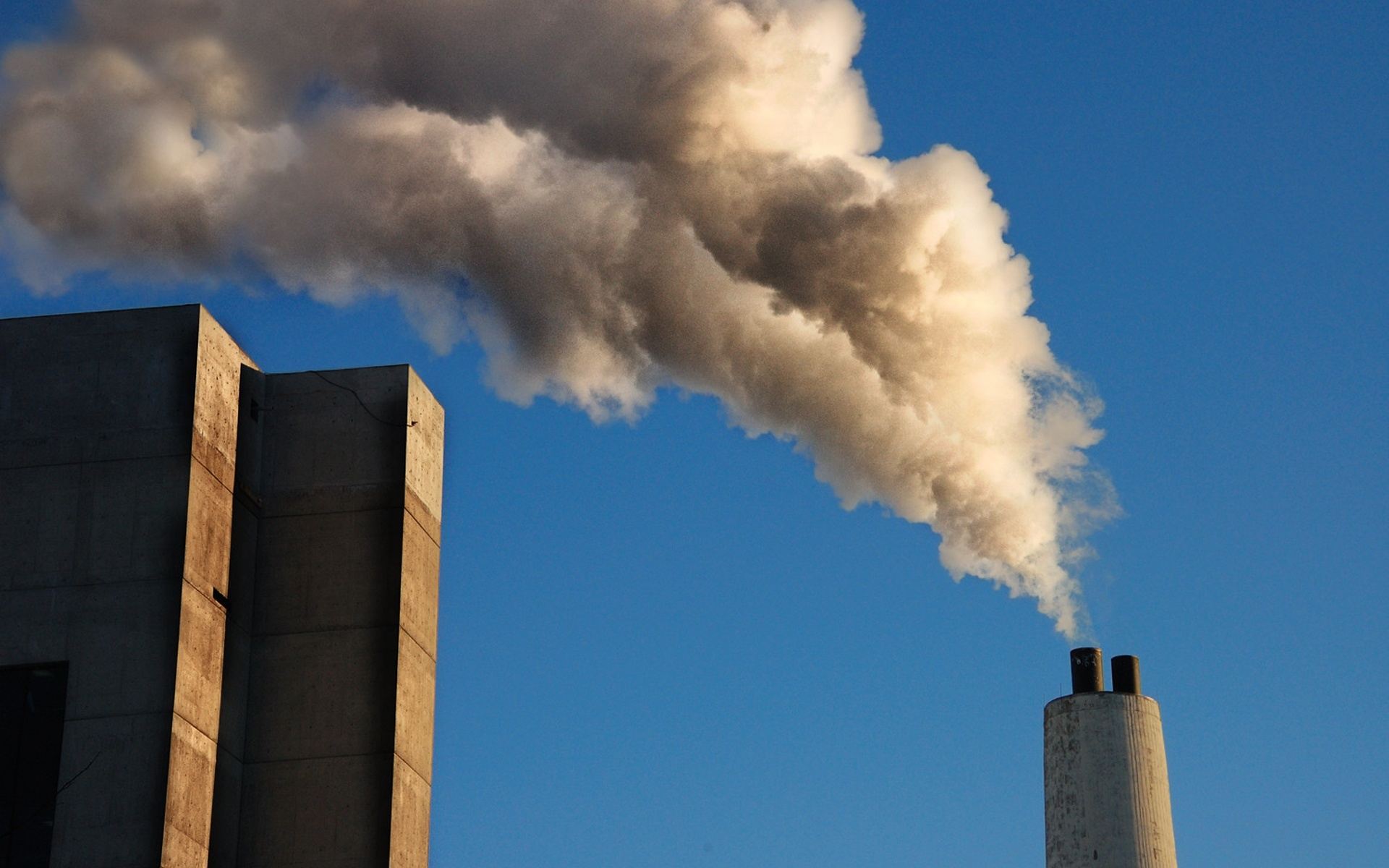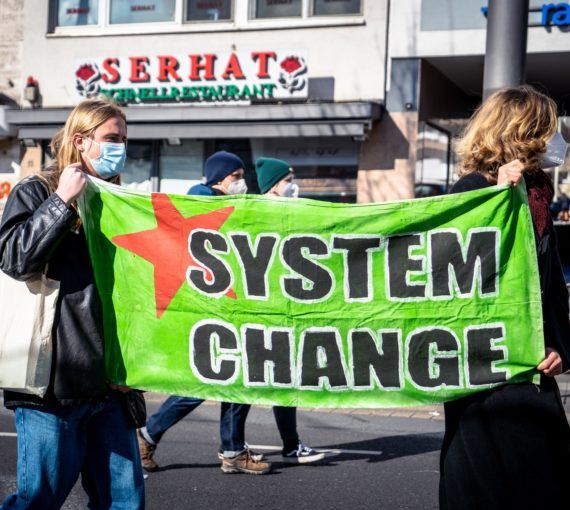
Historically and today, pollution, environmental degradation and climate change disproportionately harm Indigenous and racialized people in Canada. (Photo: Ryan T via Flickr)
Environmental racism occurs in Canada and around the world. It’s a facet of environmental injustice, and happens when development, policies or practices intentionally or unintentionally result in more pollution or health risks in Indigenous and racialized communities. We also see it in patterns of unequal access to environmental benefits like clean water and air and proximity to parks. Environmental racism has serious impacts on health and well-being.
Examples of environmental racism include:
- Siting polluting industrial sites and other environmentally hazardous projects near racialized (including Indigenous) communities.
- Greater harm from climate change and persistent organic pollutants in Inuit communities.
- Higher levels of exposure to toxic chemicals in certain consumer products marketed to racialized Canadians.
- Higher levels of occupational exposure to toxic chemicals in workplaces dominated by racialized workers.
- Inadequate environmental standards or enforcement for polluting industries/companies operating near racialized communities.
The term “environmental racism” emerged in the 1980s alongside the environmental justice movement in the U.S. It’s an unjust reality that, historically and today, pollution, environmental degradation and climate change disproportionately harm Indigenous and racialized people in Canada too. A 2020 United Nations special rapporteur report on Canada found:
“The prevalence of discrimination in Canada’s laws and policies regarding hazardous substances and wastes is clear. There exists a pattern in Canada where marginalized groups, and Indigenous peoples in particular, find themselves on the wrong side of a toxic divide, subject to conditions that would not be acceptable elsewhere in Canada. A natural environment conducive to the highest attainable standard of health is not treated as a right, but unfortunately for many in Canada today an elusive privilege.”
The David Suzuki Foundation has long advocated for legal recognition of the right to a healthy environment for all and the integration of human rights and equity considerations in environmental decision-making. All people in Canada have the right to an adequate level of environmental protection. We are working with allies to raise awareness and promote solutions to end environmental racism and advance environmental justice in Canada.
A blind spot in Canadian environmental law
Environmental justice has long been a blind spot in Canadian law and governance, but that could soon change. In June 2021, a private member’s bill addressing environmental racism (Bill C-230), introduced by former Cumberland-Colchester MP Lenore Zann, gained the support of four of five parties in Parliament. The bill proposed a requirement for the federal minister of environment and climate change to examine the link between race, socio-economic status and environmental risk, and develop a national strategy to prevent environmental racism and advance environmental justice.
Unfortunately, Bill C-230 did not advance to a final vote before the dissolution of Parliament for the September 2021 election. In February 2022, Saanich-Gulf Islands MP Elizabeth May introduced Bill C-226 in the House of Commons, a mirror image of Bill C-230. The House of Commons environment committee approved it by fall of that year. Thankfully, Bill C-226 was passed in the House of Commons in March 2023, advancing it to Senate. In the Senate, the bill was sponsored by Senator Mary Jane McCallum and was passed without amendment. In June 2024, the bill passed the Senate’s third reading vote, with the final legislative process — royal assent — expected soon. This is a historic milestone for environmental justice in Canada.
Learn more
Are you interested in reading about environmental racism and its persistence in Canada? Here are some helpful resources.
David Suzuki Foundation media releases:
- “Senate passes long-awaited legislation to tackle environmental racism in Canada” (June 2024)
- “Advocates call for Senate to vote on environmental racism legislation before summer recess” (May 2024)
- “MPs pass first major update to Canada’s most important environmental law in more than two decades” (May 2023)
- “MPs pass long-awaited legislation to tackle environmental racism in Canada” (Mar. 2023)
- “High time to pass environmental racism bill, advocates say” (Nov. 2022)
- “Civil society groups urge expedited passage of Canada’s first environmental racism bill” (June 2022)
- “Canada’s first environmental racism bill closer to becoming law” (June 2021)
- “Troubling report on environmental racism in Canada presented to the United Nations Human Rights Council” (Sep. 2020)
Science Matters columns by David Suzuki (with contributions from Lisa Gue):
- “People power achieves the right to a healthy environment in Canada” (June 2023)
- “It’s better to be woke than to sleepwalk through life” (April 2023)
- “It’s time for Canada to address environmental racism” (Dec. 2020)
- “Human rights lens needed to prevent environmental racism” (July 2020)
David Suzuki Foundation “Expert View” by Lisa Gue:
- “Environmental justice in Canada needs legislative backing now” (Mar. 2024)
- “Will Biden’s focus on environmental justice spur change in Canada?” (Feb. 2021)
David Suzuki Foundation and the Black Environmental Initiative, by Naolo Charles:
- “This Black History Month, help end environmental racism” (Feb. 2022)
David Suzuki Foundation testimony on Bill C-230:
Other useful resources:
- www.thecanadianencyclopedia.ca/en/article/environmental-racism-in-canada
- www.weforum.org/agenda/2020/07/what-is-environmental-racism-pollution-covid-systemic/
- www.enrichproject.org/
- Green Budget Coalition recommendation to fund a Canadian Office of Environmental Justice and Equity: greenbudget.ca/recommendations2022/
- ecojustice.ca/environmental-racism-in-canada/
The health of the natural environment and social justice issues are interconnected. The David Suzuki Foundation is committed to unearthing and helping address the root causes of the ecological crises we face. Thank you for supporting this important work.
Four examples of environmental racism in Canada
What do these four things have in common?
- A pipe at a pulp mill ruptures, spilling untreated effluent into a Pictou Landing First Nation wetland, but it takes six years to solve the problem.
- A 2020 study finds air pollution in Canada’s three largest cities has the most harmful effects on immigrants (Montreal), low-income residents (Toronto) and Indigenous residents (Vancouver).
- Throughout Canada, dozens of First Nations still don’t have access to clean and safe drinking water.
- An unmanaged dump on Mohawk land overflows with toxic waste, in excess of provincial permits, with ineffective enforcement and no cleanup plan.
These are all examples of environmental racism. It has to stop.



